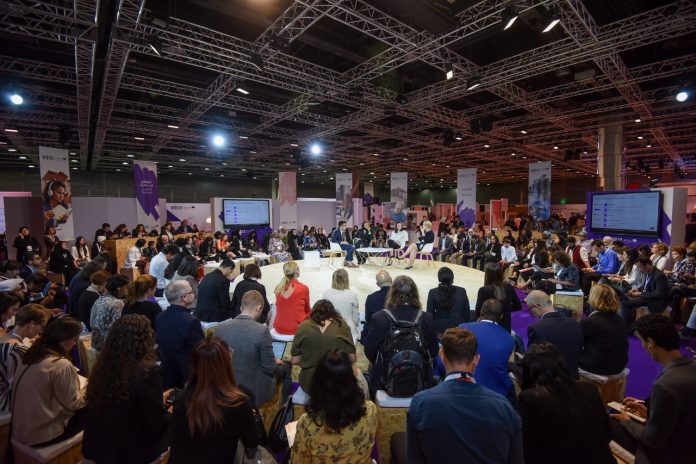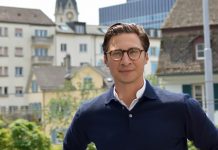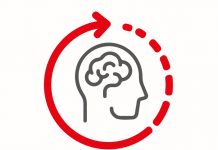“Before the invention of cooking, we spent most of our lives chewing.” I laughed out loud, with quite a few others, in the vast main theatre of the Qatar National Convention Centre at the close of WISE, the World Innovation Summit on Education. Jason Silva, of the National Geographic show Brain Games, was delivering a barnstorming closing keynote on our relationship with technology.
With all the recent talk on moonshots, loonshots, and discombobulating visions of our near future world, the cooking joke was a moment of levity which nevertheless spoke of a much earlier significant disruption in human evolution, setting in plain view the theme of WISE 2019 – Unlearn, Relearn, What it means to be human. And this 10th anniversary edition of WISE certainly pulled together a diverse and eclectic audience of practitioners, decision makers and influencers, from the President of Armenia to Shakira and founding member of Bruce Springsteen’s E Street Band, Steven van Zandt.
In this column over the past few months, we’ve covered our current relationship with technology, considering first the ways in which technology exploits our human weaknesses before looking at a more positive view of technology’s role in our working lives.
Considering learning and education – as well as the role that technology plays – seemed to be the perfect follow-up, and I had the pleasure of interviewing the WISE CEO Stavros Yiannouka on the eve of the summit. “From no hair to grey hair” was his answer on scope when I first enquired about the education focus of WISE. And lifelong learning is certainly a necessary feature of our longer working lives in which disruption requires us to constantly strive to stay relevant. I think learning may also contribute to our wellbeing, allowing us to perhaps define and check-in on our purpose and passion, which may change through our working life.
Unlearning is a key part of this process, which may include hard technical knowledge associated with our jobs, softer skills associated with how we manage and lead, and also knowing thyself, recognizing that we will change, and ideally grow, significantly in our lifetimes. Disrupting oneself may be a daunting, but increasingly necessary action. Like the ‘innovators dilemma’ people, like companies, no matter how successful, must at some point leave behind the old way of doing things and make the switch to a new path.
I believe learning may also help open the door for wellbeing at work. As it is being increasingly legitimized, with the requisite space being given to learn at work, the increased empowerment, freedom, and responsibility to learn will help create space also for wellbeing. I don’t think we can effectively learn when our wellbeing, in whatever dimension, is compromised. Physical health has been shown to support learning efficacy in young children, while excessive stress and more broadly, poor mental health, affects memory and may reduce the likelihood of adopting the open mindset necessary to assimilate new knowledge. The growth mindset espoused by Prof. Carol Dweck includes the comparison between the “learn-it-all” and “know-it-all” kids at school, highlighting the advantage the “learn-it-all” will eventually gain.
The relationship between learning and wellbeing may therefore take several forms. Learning is a part of being well, being our best selves. Learning through wellbeing was the title of the panel on which I spoke at WISE, and wellbeing has been the focus of my own teaching to executives for over 10 years in their own learning efforts. Wellbeing is increasingly being taught at younger stages of education, within an overall appreciation of emotional intelligence for young people. For example, mindfulness practice, even at junior schools, is being taught as a means of tackling indiscipline and in areas where poverty and crime often send children on the wrong path. WISE released a report at the summit with RAND on how wellbeing curricula may be integrated for school-level children.
Yiannouka doesn’t distinguish between learning and education, which may happen anywhere, preferring to make the distinction between learning and schooling. He highlights the importance of socialization in the learning process, an important reminder in an age when content chunks may be consumed via different technological means. Fully exploiting the power of new technology to improve the learning process, both at school and work is critical, but learning doesn’t happen in a bubble. The application of any learning content, by doing, ideally in a collaborative sense is what makes it stick.
Likewise with wellbeing – which doesn’t simply regard our own habits and behaviour – though I believe this to be the critical point of departure. We must also consider how our own behaviour and actions impact on others’ wellbeing and how we may contribute to our own through the relationships we develop. In an age of dismantling hierarchies and loosening of the predominant ‘ego-system’ towards an ‘eco-system’, the workplace as a social entity will become ever more important.
The need to elevate socialization may indeed be the factor that links learning and wellbeing closest of all.
And this aspect of connectedness also reminds me of the importance of considering a wide array of perspectives in the pursuit of wellbeing. An aspiring “Davos of Education” WISE contained a much more diverse and grassroots community than the World Economic Forum event, yet all passionate about furthering the objectives of education worldwide. If wellbeing could benefit from a similar luxury, our future working lives will be much brighter. Who knows, we might even have an equivalent to the cooking joke, and wonder how we spent all of our time in meetings.





































